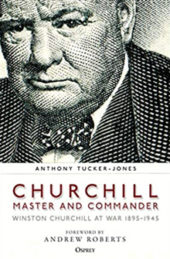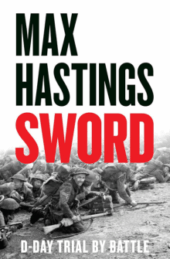The seeds of the German nation, nursed into being by the wily statesman Bismarck, were sown in Prussia’s humiliation in the Napoleonic Wars. By the time the fragmented German states got their act together, fought back and won at Leipzig in 1813, the journey to unification had begun. Galvanised by a common foe the people of the disparate principalities and dukedoms of the emergent Germany had found a common unifying bond in ‘blood and iron.’
Katya Hoyer’s galloping narrative tells the story of the new German state from the formal pomp of the Kaiser’s coronation at the Palace of Versailles in 1871 to crushing defeat and dismemberment at the Palace of Versailles in 1919, back where it had all begun, nearly half a century beforehand.
By starting her story and situating Germany’s journey to world war and holocaust in the year of Bismarck’s birth, 1815, Hoyer has taken flack for letting Bismarck – and after him Kaiser Wilhelm II – off the hook. From the very start “A spirit of defensive nationalism had taken hold that would lead to both the creation and destruction of the German Empire.” By this analysis, it was the system that was flawed from the beginning.
Nevertheless, this is a story dominated by some remarkable personalities and relationships. A feeble Kaiser Wilhelm I is bullied and manipulated by Bismarck who calls the shots. For Bismarck’s realpolitik the end justified the means and nothing was off limits, as he schemed his way around his political opponents, undermining, cajoling and manipulating them.
In his day Bismarck was hugely popular. He was the ‘Gundervater’ in the same way that Angela Merkel is affectionately known as ‘Mutti.’ “It seems a nation so fractured and diverse, so scarred by division, war and bitter memories, craves stability and leadership in an almost childlike way.”
Under Bismarck the early achievements of the Second Reich were astonishing. A united Germany industrialised fast. German manufacturing powerhouses such as Siemens, BASF and Bayer were born. The new Reichstag building was the wonder of its age, epitomising the Grunderzeit, the ‘Founder’s Period.’
So far this story will warm the hearts of any Europhile. The church was put in its place by a secularising and liberal state. Free movement of people boosted the economy, tariffs removed, and a common currency introduced. Universal male suffrage was introduced. Irrespective of Bismarck’s motives this had the trappings of a thoroughly modern state, bolshy parliament and all.
But this was papering over the cracks. The fruits of Bismarck’s ‘defensive nationalism’ led inevitably to a nation “whose patriotic fervour required a constant diet of conflict.”
By the time we get to the second half of Blood and Iron we’re on familiar turf with the hopeless and infantile Kaiser Wilhelm II. Arrogant and misguided he sacks Bismarck. Physically and emotionally damaged he obsesses about military glory and armies. The Kaiser is inspired by yacht racing at Cowes to build a navy (whilst staying with his maternal Grandmother Queen Victoria). Germany rearms and the story heads towards its all too familiar conclusion.
This is a lively, concise and well-written narrative account. Hoyer covers a great deal of ground at pace. Blood and Iron will join works by Neil MacGregor and Christopher Clark as helpful guides to this important nation that defined so much of the 20th century, and which is the world’s fourth largest economy today.
Justin Doherty is a classicist, former army officer and advisor to governments on crises and complex situations.






